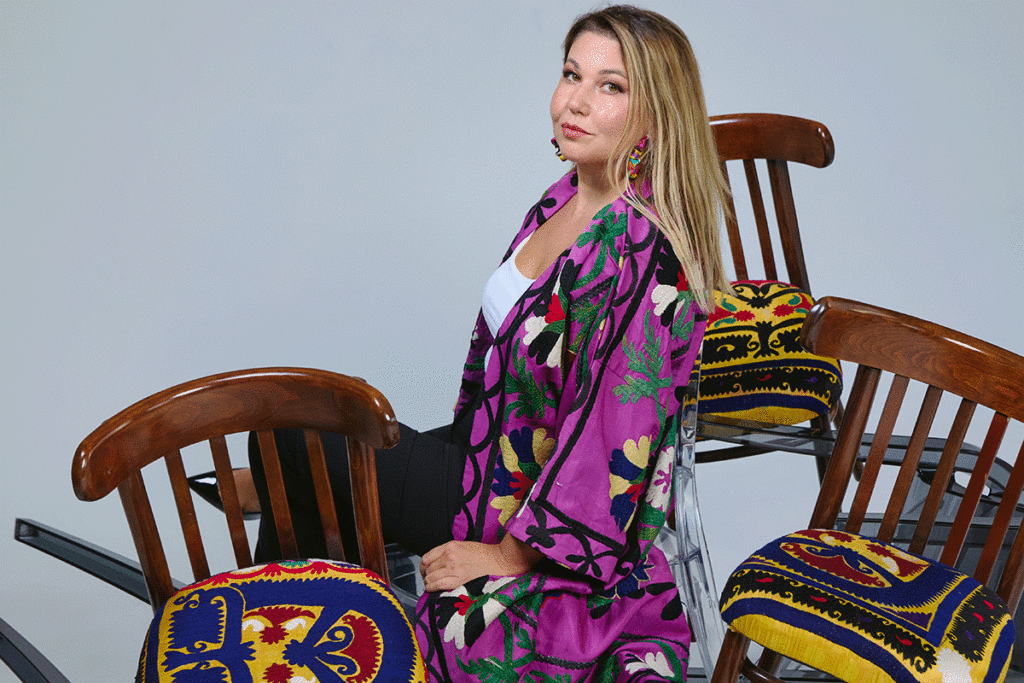My journey from Uzbekistan to the United States
My name is Laylo, and I was born and raised in the Republic of Uzbekistan. I am a proud wife and mother of two beautiful kids: a sweet daughter, Tuana, who just turned 11 years old this January, and son, Rayan, who is 6. I am working as a lecturer for entrepreneurship courses at the Tashkent State University of Economics. I earned my MBA from Webster University’s branch in Tashkent, which has enriched me with valuable knowledge and skills in business management.
As a PhD candidate specializing in entrepreneurship, my interest is focused on the entrepreneurial ecosystem lifecycle from identifying the right opportunities, qualifications, funds allocation, and responsibilities of stakeholders in the United States.
I am delighted to participate in the Faculty Exchange Program (FEP) organized by the Ministry of Higher Education, Research and Innovation of Uzbekistan, and the American Council. This program provides professionals in academia with the opportunity to gain precious experience from a U.S.-based university. I am particularly eager to learn from my mentor, University of Missouri Professor J. Scott Christianson.
Professor Christianson has inspired thousands of young entrepreneurs and has played a pivotal role in developing their businesses. His insights into entrepreneurship education and practical applications will be invaluable as I seek to enhance my teaching techniques and methodologies for better supporting my students seeking entrepreneurial journeys.
During my first week in the program, I have already been profoundly impressed by the culture of collaboration among local entrepreneurs. At the 1 Million Cups event at the Regional Economic Development Inc. (REDI) hub in downtown Columbia, I witnessed firsthand how established business owners dedicate their time and resources to support entrepreneurs. This example of business culture reflects a strong sense of social responsibility and community engagement that fosters an environment where everyone can thrive. It is a model of collaboration that I would love to bring back home as a business culture norm in Uzbekistan.
In a world where we often equate time with money, 1 Million Cups serves as a powerful reminder that not everything is about financial gain — it’s also about growing networks that can lead to collective success.
Another significant takeaway from my experience so far has been observing the collaboration between universities and the private sector. Currently, I am engaged with the International Trade Center program at the University of Missouri; in particular, Jackie Rasmussen’s team is actively involving students in helping small businesses develop strategies for entering international markets and selecting appropriate countries for export. This initiative resonates deeply with me because it highlights an essential aspect of entrepreneurship to understanding global markets.

More than 96 percent of the world’s population (potential consumers) is located outside the United States, and 97 percent of exporters are small and medium-sized enterprises (SMEs). This statistic underscores the importance of equipping young entrepreneurs with the skills and knowledge necessary to navigate international trade successfully. I am enthusiastic about connecting U.S. businesses with opportunities in Uzbekistan while simultaneously discovering markets for our unique handmade products, including those from my own venture boutique, Art Corner.
Art Corner by Leyla is not just a venture that sells upcycled items adorned with Uzbek traditional fabrics and handmade embroidery; it is an opportunity to share Uzbek culture with the globe. Each item carries its own story as I incorporate symbolic elements from Uzbek culture into my designs. One prominent feature is “suzani,” a traditional form of embroidered textile art where Uzbek women express their dreams, passions, and emotions through intricate patterns and vibrant colors.
Suzani embroidery often depicts motifs such as flowers, suns, and pomegranates — each symbol rich with meaning. For instance, pomegranates are symbols of fertility and blessings in Uzbek culture. Traditionally embroidered by young women before marriage, these motifs are used to decorate walls in their new homes, attracting positive energy while dreaming of having large families.
In addition to traditional embroidery, I sometimes paint these symbols to create matching designs for my home decor items. This fusion of craftsmanship allows me to showcase not only the beauty of Uzbek artistry but also its rich cultural heritage at international platforms.
Through my participation in programs like 1 Million Cups and collaborations at universities like Missouri’s International Trade Center, I aim to gather insights that can help foster a supportive entrepreneurial ecosystem in Uzbekistan. The lessons learned here will not only benefit my own business but also empower my students to think globally as they develop their entrepreneurial ventures.
In summary, my path as both an educator and entrepreneur is fueled by a dedication to empowering youth through education and hands-on learning. Participating in the Faculty Exchange Program, I aim to gain valuable insights to refine my teaching approaches while also seeking strategies to strengthen government backing for entrepreneurs in Uzbekistan.
By connecting theory with real-world application — whether through initiatives like Art Corner or direct interaction with students — I strive to motivate a new generation of innovators equipped with the skills needed to succeed in a rapidly changing global economy.
This experience represents just one step in a lifelong journey devoted to entrepreneurship education — a journey driven by curiosity, creativity, and a steadfast belief in the power of collaboration between Uzbek and American entrepreneurs. As I move forward on this exciting path, I am eager to share the knowledge I’ve gained with my community back home while building meaningful connections. Together we can cultivate a dynamic entrepreneurial culture and foster cross-border partnerships that inspire innovation and growth.










